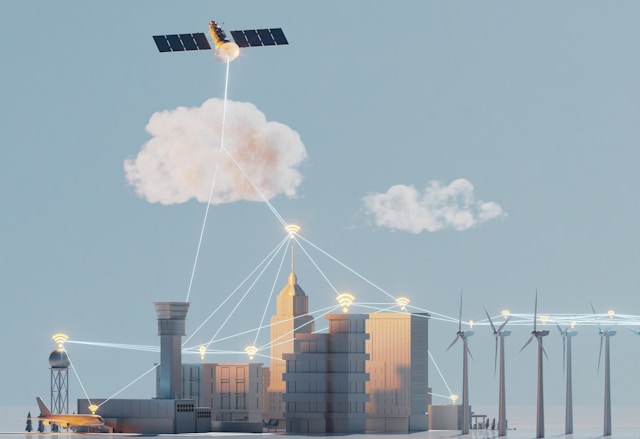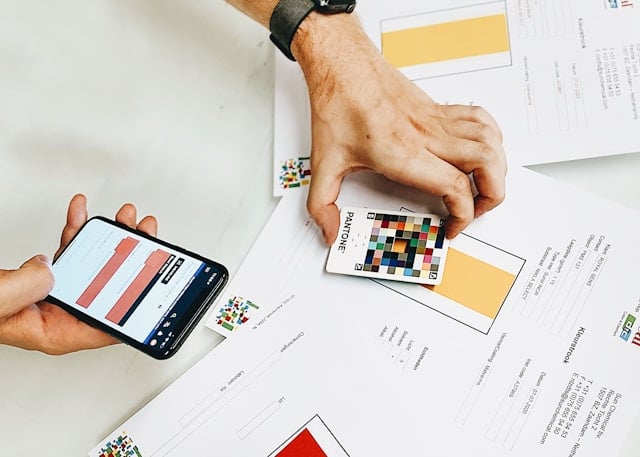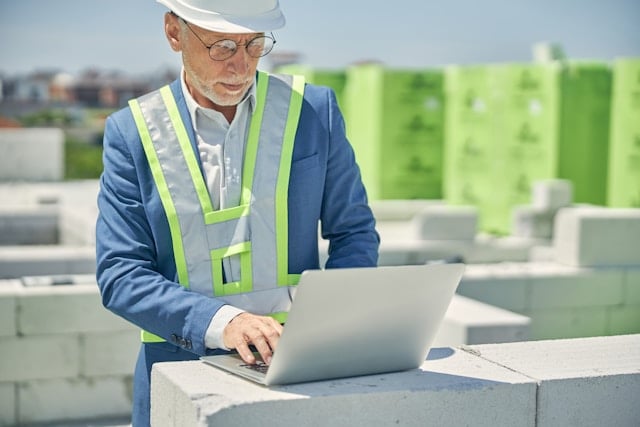Revolutionizing Construction Efficiency with Advanced Technology: A New Era in Material Procurement and Project Management

In today’s fast-paced construction environment, delays and inefficiencies can have significant financial consequences. To overcome these challenges, companies are increasingly adopting advanced technologies to streamline material procurement and project management. From Artificial Intelligence (AI) and Machine Learning (ML) to the Internet of Things (IoT) and blockchain, these innovations are reshaping how projects are planned, managed, and executed. Let’s explore how these technologies are solving some of the most persistent issues in the construction industry.
Tackling the Material Procurement Challenge
Material procurement is one of the most critical aspects of any construction project. Delays in sourcing essential materials like concrete, steel, or other key components can lead to significant disruptions, halting progress and driving up labor and equipment costs. This is particularly challenging when the procurement process isn’t aligned with a project's critical path, leading to rescheduled phases, extended deadlines, inflated budgets, and, in some cases, financial penalties for missed contractual obligations.
The Role of Advanced Technologies
Fortunately, the integration of advanced technologies offers new solutions. By incorporating AI, ML, IoT, and blockchain into material procurement and project management, construction companies can enhance efficiency, reduce costs, and stay on track. Here’s how these technologies are making a difference:
1. AI and Machine Learning for Predictive Analytics
AI and ML are game changers in predicting potential delays and optimizing project timelines. By analyzing large datasets—such as weather forecasts, supplier performance metrics, and delivery timelines—AI can anticipate disruptions and suggest actionable recommendations. For instance, AI-powered models can forecast delays in material deliveries and adjust project schedules to minimize their impact.
2. IoT for Real-Time Monitoring
The IoT is revolutionizing the construction site by offering real-time visibility into materials and equipment. IoT sensors embedded in shipments or machinery allow project managers to monitor inventory levels, track deliveries, and check equipment status in real-time. This data minimizes theft, ensures materials are delivered when needed, and prevents costly delays. Additionally, IoT-powered logistics systems help teams anticipate delivery disruptions, allowing proactive adjustments to maintain the project schedule.
3. Blockchain for Transparency and Security
Blockchain technology brings unprecedented transparency and security to construction procurement. With its decentralized, immutable ledger, blockchain ensures all transactions—whether related to material orders or payments—are securely recorded and cannot be tampered with. This reduces the risk of fraud or disputes. Additionally, blockchain enables the use of smart contracts, which automate payments once predefined conditions (like material delivery) are met. This streamlines administrative processes and ensures timely payments to suppliers.
Navigating Global Supply Chain Disruptions
Recent global events, such as the COVID-19 pandemic and the Suez Canal blockage, have exposed vulnerabilities in global construction supply chains. Dependencies on specific materials from certain regions can leave projects susceptible to international disruptions. However, advanced technologies offer tools to mitigate these risks.
1. Big Data for Risk Management
Big data analytics enables construction companies to predict potential supply chain disruptions by analyzing historical data and market trends. Factors such as weather patterns, political instability, or commodity price shifts can affect material availability. By leveraging predictive analytics, companies can proactively adjust procurement strategies and reduce the risk of disruptions.
2. Diversified Supply Chains
With real-time insights into supplier performance and availability, companies can diversify their supply chains, reducing dependence on a single supplier or region. This flexibility is crucial for maintaining project schedules during global crises, allowing firms to adapt quickly and ensure steady material flow.
Automating Inventory and Procurement Management
Automation is transforming how construction companies manage inventory and procurement. Real-time tracking systems can automatically reorder materials when inventory levels are low, ensuring critical supplies are always available without overstocking. This just-in-time approach reduces waste and improves operational efficiency.
Additionally, automating administrative tasks like data entry, order tracking, and payment processing minimizes human error and allows staff to focus on higher-level strategic tasks, ultimately improving the overall efficiency of procurement management.
The Future of Construction Efficiency
As the construction industry continues to evolve, technology will play an increasingly vital role. We can expect more widespread use of AI and ML to optimize project timelines, greater adoption of blockchain for secure transactions, and deeper integration of IoT devices to monitor and control the construction process in real-time.
Moreover, Virtual Reality (VR) and Augmented Reality (AR) are beginning to enhance procurement processes by allowing teams to visualize material specifications and simulate real-world scenarios, improving decision-making.
The construction industry is on the brink of a technological transformation. By embracing advanced tools like AI, IoT, blockchain, and automation, companies can address today’s challenges while preparing for a more efficient, resilient future. These innovations will streamline material procurement, prevent costly delays, and ensure that projects are delivered on time and within budget.
As construction projects grow more complex and global, integrating these technologies will be essential for staying competitive, reducing costs, and achieving better project outcomes. The future of construction is smart, connected, and driven by innovation.









